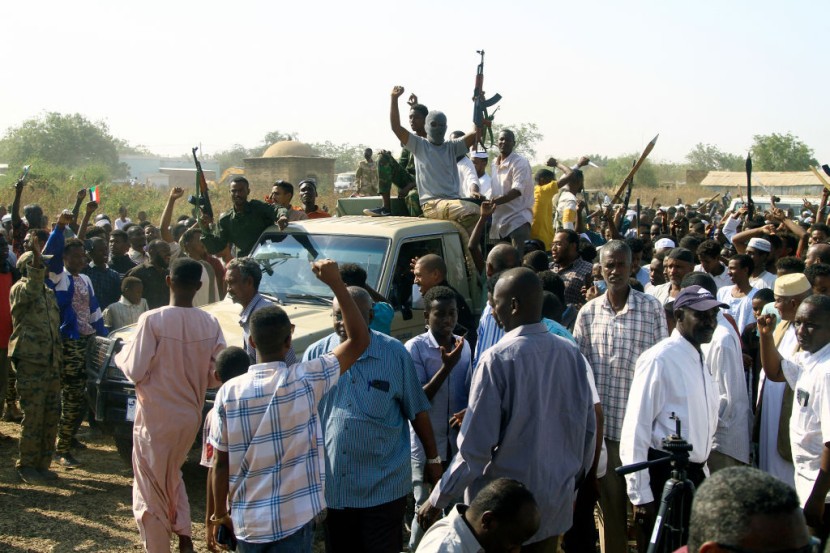The UN High Commissioner for Refugees reported nearly eight million have been displaced and forced to flee their homes as the war rages on. The alarming figure was announced Wednesday as High Commissioner Filippo Grandi concluded a visit to Ethiopia, to which many of the displaced people have fled.

According to Al Jazeera, since April 2023, more than 100,000 people have crossed into Ethiopia from Sudan, including close to 47,000 refugees and asylum seekers -- this excludes the 50,000 Sudanese refugees who were already in the country.
Grandi called for "urgent and additional support to meet their needs" as he inspected the efforts of the Ethiopian government and the UNHCR to assist.
Neighboring countries have also seen a rise in the number of Sudanese refugees coming to them. More Al Jazeera reports more than half a million people have fled to Chad since April. On average, 1,500 people cross daily into South Sudan.
The recent surge in violence amid the 20-year conflict has left nearly half of Sudan's 49 million population in dire need of assistance. The UN also reports that 12,000 people had been killed by the end of 2023, although the death toll is believed to be higher.
The current status in Sudan is an extension of an earlier conflict that began in 2023. Rebels from the territory's ethnic sub-Saharan African community organized an armed rebellion against the Arab-dominated government of Khartoum with accusations of discrimination and neglect.
How Did This Start?
Simmering tensions reached a high last April between the military, led by General Abdel Fattah al-Burhan, and the paramilitary Rapid Support Forces, headed by Mohamed Hamdan Dagalo-- also referred to as Hemedti, that resulted in an eruption of street battles in the capital Khartoum, and surrounding areas.
The government, under President Omar al-Bashir at the time, responded with aerial bombings, unleashing the militia group, Popular Defence Forces or Janjaweed, and stands accused of mass killings and rapes. Up to 300,000 people were killed, and 2.7 million were driven from their homes.
International entities and peacekeeping forces have continued to struggle to find a way to subdue the violence over the last two decades.
The UN Refugee Agency reported Grandi's three-day visit to Ethiopia gave him an inside observation of the first-hand efforts of the Government of Ethiopia, supported by the UNHCR and partners, to assist Sudanese refugees who have recently arrived in the country.
"I heard stories of heartbreaking loss of family, friends, homes, and livelihoods, yet amid this despair, I also saw refugees' determination to move forward, if given the support and opportunity," said Grandi.
"Ethiopia's continued generosity to the displaced, including those who have recently arrived from Sudan, is commendable and should be matched with even greater support from the international community. Without further donor support, it will be extremely difficult to deliver much-needed help to those who need it most," Grandi added.
Ethiopia hosts one of the largest refugee and internally displaced populations globally and is the third largest refugee-hosting country in Africa, and is currently home to nearly 1 million refugees -mainly from South Sudan, Somalia, Eritrea, and Sudan - while an estimated 3.5 million Ethiopians are internally displaced.









